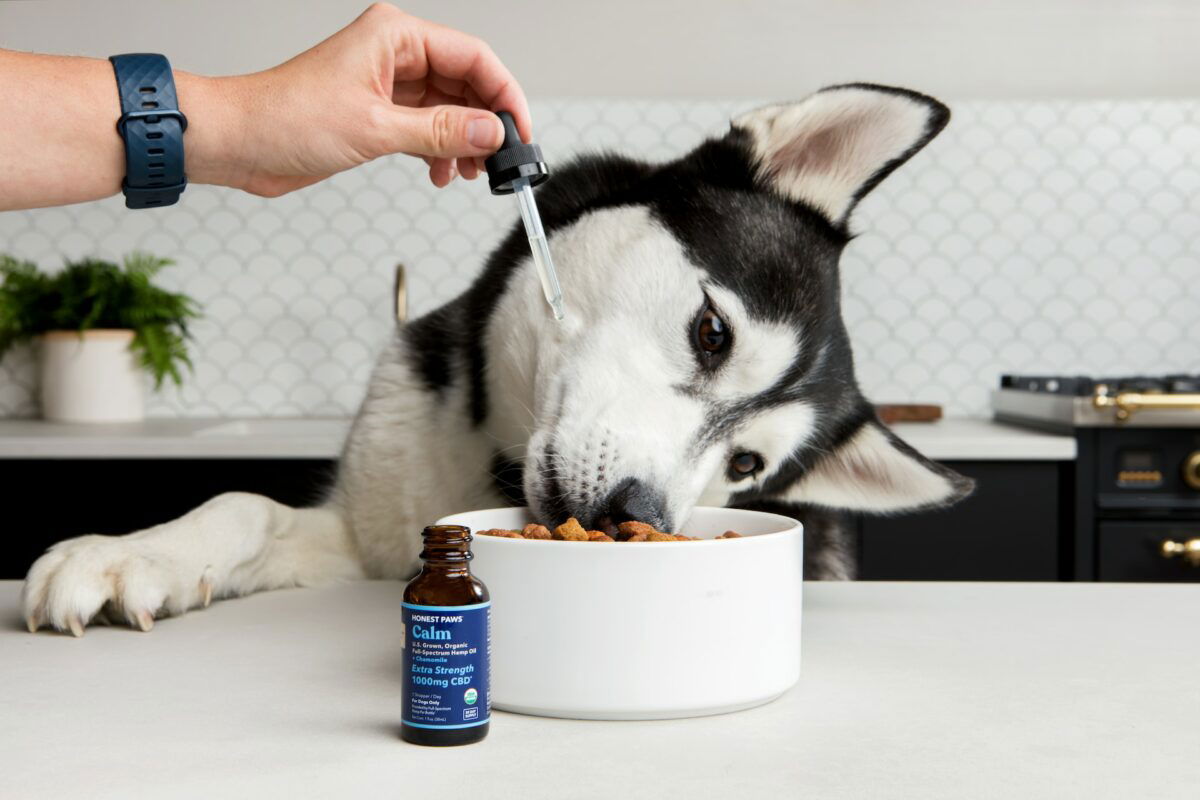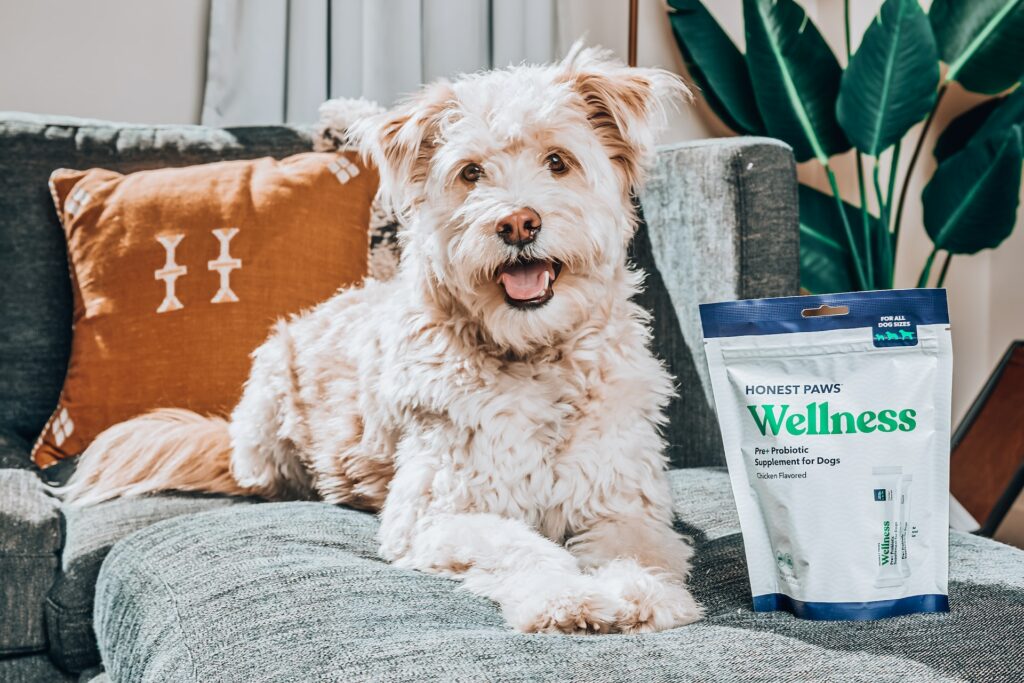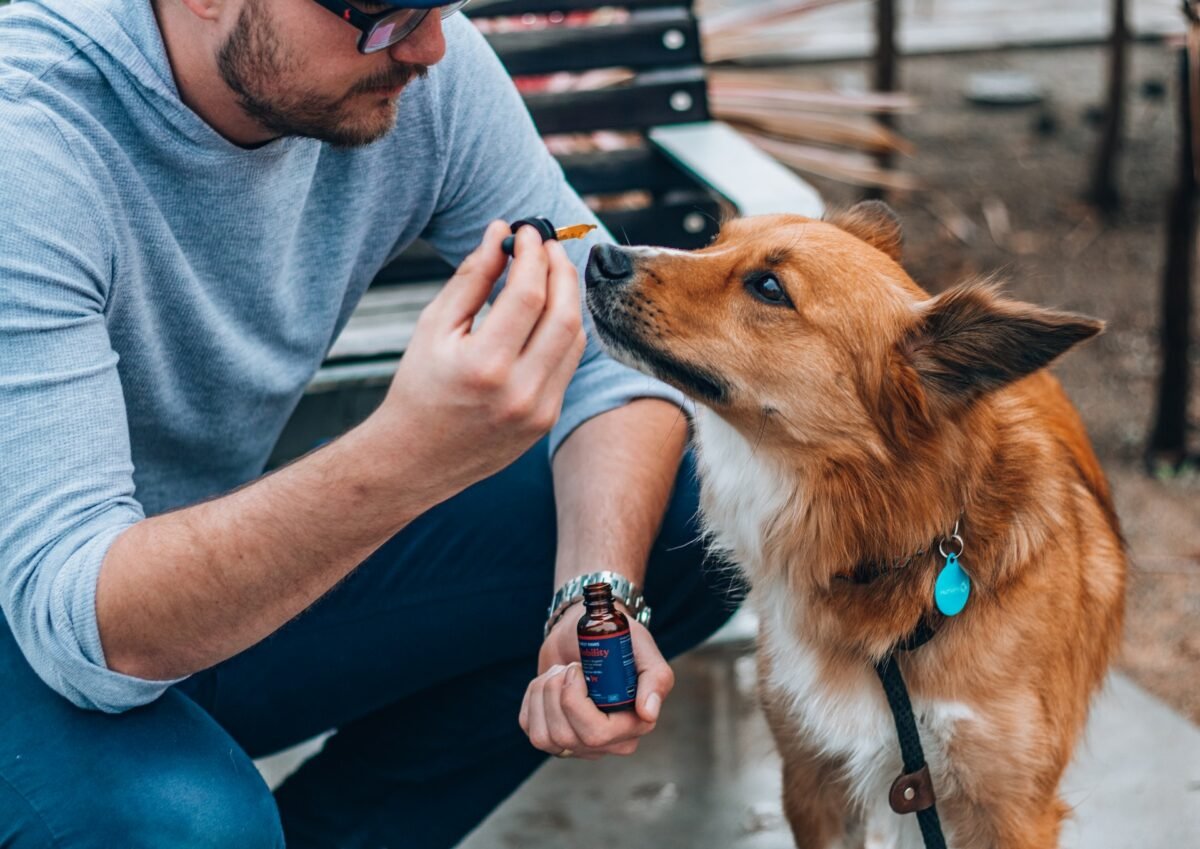We're an affiliate
We hope you love the products we recommend! Just so you know, we may collect a share of sales or other compensation from the links on this page at no additional cost to you. Thank you if you use our links, we really appreciate it!
Probiotics for dogs have been shown to confer huge health benefits when taken in significant amounts over a consistent period.
Research on canine probiotics is ongoing and new studies are revealing more benefits that we never thought of before.
Join us in this post as we take an in-depth look at what dog probiotics actually are and discuss why adding them to your furry friend’s diet could make a difference.
Understanding Dog Probiotics
1. What are dog probiotics?
Dog probiotics are living microorganisms, often referred to as ‘good’ bacteria/yeast, that offer health benefits when taken in adequate amounts.
These friendly bacteria are hosted in the dog’s gastrointestinal tract where they cancel out pathogens to create a balanced intestinal environment.
2. Historical perspective on probiotics
The concept of using probiotics as we know them today is not new! During ancient times, people would ferment foods to preserve them, improve taste, and harness some potential health benefits.
It wasn’t until 1907 when Russian scientist, Elie Metchnikoff studied the effects of fermented foods, to determine its role in improving the lifespan of human living along the Caucasus Mountains of Bulgaria.
Metchnikoff concluded that certain bacteria strains found in fermented dairy products could actually improve the overall well-being and lifespan of the host.
3. Probiotics’ role in the gut-brain axis and immune system
Probiotics build the microorganism environment in the gut which helps in the synthesis of compounds linked with enhanced brain health.
This is vital because it can affect the overall cognitive capabilities of dogs and hinder progressive degenerative conditions such as canine dementia.
4. Differentiation between probiotics and prebiotics
Aside from probiotics, you may have heard of another confusing term – prebiotics. These terms do not mean the same thing, even though some people may use them interchangeably.
Probiotics are the beneficial bacteria living in the dog’s gut to promote a balanced gastrointestinal environment.
Prebiotics on the other hand refers to certain undigestible fiber and carbohydrate compounds that acts as food source for the ‘good’ bacteria in the dog’s intestines.
Both prebiotics and probiotics are needed in sufficient amounts to provide the synergistic benefits of a balanced microbial environment in the gut.
Scientific Evidence for Probiotics Effects on Dogs
To determine the benefits of probiotics for dogs, several clinical studies have been conducted over the years by a growing body of scientific researchers.
Bhagavathi Sundaram and his fellows did a study in 2021 about the influence of probiotic supplementation on the overall health of dogs.

The following are some of the positive findings highlighted from their study:
1. Alleviation or prevention of atopic dermatitis
The report showed that the oral administration of the bacterial strain Lactobacillus sakei on dogs diagnosed with atopic dermatitis showed a severity index reduction of the disease.
2. Treatment of gastrointestinal diseases like diarrhea
Dogs with diarrhea were kept on a daily dose of fermented sour milk containing strains of Lactobacillus fermentum, Lactobacillus plantarum, and Lactobaccilus rhamnosus.
The effects of daily intake of sour milk were seen through normalized stool consistency and improved appetite in dogs with diarrhea.
3. Improved gut microbiota
The gastrointestinal microbiota of sickly dogs was balanced by reducing harmful bacteria and increasing beneficial bacteria after a daily intake of fermented milk.
Bad bacterial strains such as C. perfringens and E. faecium were also found to decrease in significant amounts during the probiotic treatment.
4. Enhanced immune response and antibody levels
Lactobacillus johnsonii was shown to improve the Cell-mediated immune response through an increase in antibody levels.
This helps improve the overall health of the dogs after probiotic treatment. A strong immunity keeps your dog well-armed to fight disease-causing pathogens.
5. Reduction of fecal odor and improved fecal consistency
An administration of Bacillus subtilis and Bacillus licheniformis to 20 healthy dogs indicated a significant reduction of fecal odor and improved stool consistency.
These bacterial strains work by reducing the fecal biogenic amine content in dogs with smelly stool.
6. Maintenance of body weight
A daily dose of Lactobacillus acidophilus showed that the subjected dogs were able to maintain a healthy body weight throughout the study duration.
This bacterial strain has also been linked with improving fecal moisture in healthy dogs and keeping their body condition at an optimum level.
7. Increased levels of beneficial fatty acids in the gut
Some dogs were fed Queso Blanco cheese which is packed with the bacterial strain Bifidobacterium longum.
The gastrointestinal microbiota was found to be balanced and packed with beneficial short-chain fatty acids which improves metabolism and helps with inflammatory response.
8. Lowered blood glucose levels
Healthy dogs who took Lactobacillus johnsonii or Lactobacillus acidophilus were shown to have lowered their blood glucose levels after the study duration of nine weeks.
9. Reduced fecal pathogenic bacteria counts
Daily supplementation of Bacillus amyloliquefaciens in healthy dogs was manifested in a reduction of fecal pathogenic clostridia.
10. Improved nutrient digestibility and metabolic functions
Optimum food digestibility and nutrient absorption together with metabolic functions was observed in trials with adequate supplementation of certain lactobacillus strains.
This well-researched evidence of probiotics for dogs has been proved further by additional research done by Łukasz Grześkowiak and team.
In addition to the above-mentioned benefits, the study group found that daily supplementation of beneficial bacteria strains can improve dog’s skin health and reduce allergies.
Signs Dogs Need Probiotics
Various signs can show that your dog is in need of probiotic supplementation, including:

1. Diarrhea
This is perhaps the most obvious sign that your dog’s intestinal tract is off balance. Mild or severe diarrhea is characterized by loose watery stool with the risk of dehydrating the affected dog.
Offering your dog enough probiotic supplements with various bacterial strains can help restore the gut environment in your dog and disrupt frequent rush to the toilet.
2. Bad breath
Halitosis (bad breath) is a clear sign that your dog is struggling with bad bacteria in the gut or dental problems.
This could mean that the pathogens in your dog’s intestines are hindering proper digestion, and causing food malabsorption which leads to bad breath.
3. Gas
If your canine companion is frequently gassy, it could be a sign of an upset or unbalanced digestive tract.
Probiotics treatment can support a healthy gut flora and help reduce this uncomfortable symptom.
4. Cramping
Cramping in dogs can be linked with digestive issues. Offering probiotics can help soothe the intestines, reducing discomfort and promoting the digestive wellness of your canine buddy.
5. Antibiotic use
Antibiotics can wipe out both bad and beneficial bacteria from your dog’s gut, leading to an imbalance in the intestinal flora.
Starting probiotic treatment immediately after antibiotic use can help restore the gut equilibrium by replenishing the good bacteria.
How to Choose and Administer Probiotics
Despite their powerful effects, not all probiotics are made equal. Pet parents need to be thoroughly informed and guided when choosing a probiotic for their furry friend.
The following is a typical blueprint you can use to make the best selection for your dog’s digestive health:
1. Live culture
The science behind probiotics lies in their ability to deliver LIVING microorganisms to the host’s intestines.
You should therefore ensure that your desired product has sufficient viable microorganism strains that guarantee its efficacy.

2. Clear labeling
All this information can be found in the product labeling, which should be written on the packaging material.
The labeling should contain the type of bacterial strains, the Colony-Forming Unit (CFUs), any other additional ingredients (like prebiotics), and the expiry date.
3. Manufacturer’s support
Look for manufacturers that provide clear instruction guidelines on how to administer the product to your dog and support assistance in case you have any queries.
Recommended products and dosage
There’s no harm in giving your dog a daily dose of probiotic goodness for digestive support. However, the dosage might differ based on your dog’s size, health, or the specific product.
If you’re anticipating an event that can be stressful for your dog, such as traveling, you can start giving your dog some probiotics weeks ahead to stabilize their gut before the actual date.
What are the different forms of Probiotics for Dogs?
Canine probiotics exist in different forms to ensure there’s a product for every dog’s needs and preferences.
The following are some of the most common forms of dog probiotics that you can find in your local pet store:
- Capsules or tablets
- Powders
- Chews
- Liquid supplements
- Probiotic-enhanced dog food
- Treats with added probiotics
If your dog doesn’t like taking capsules, you can try mixing their food with an adequate amount of microbic-rich powder.
If that still doesn’t work, you can go for dog treats with added probiotics, and chews, or get microbial-enhanced canine food to ensure your furry friend doesn’t miss out on a healthy gut.
Safety and Precautions of Dog Probiotics
Even though probiotics are packed with numerous benefits for our beloved canines, it’s always important to follow safety provisions when offering them to your dog.
As with any other dog supplement, we recommend adhering to the dosage guidelines provided by the manufacturer or your vet.
Giving excess amounts of probiotics to your dog may not be harmful to them, but remember it does not lead to an immediate increase in good bacteria.
Your dog will use the probiotics they need and excrete the rest, which may lead to wastage on your part.
Talk to your vet about the possibilities of allergies or hypersensitivities of your dog when consuming live microbial products.
On the same breath, it is important to monitor your dog for any adverse reaction when giving them a specific probiotic product.

Veterinary Recommendations and Research Insights
Remember to consult with your vet before starting your dog on a new supplement, probiotics included. Your vet should keep you updated with recent findings on probiotic benefits for dogs.
Commercial aspect
Dog probiotics can be found both in local pet stores and online stores.
It’s always a good idea to check with the manufacturer if they have any backup data that supports the effectiveness of their products.
Products with more viable bacterial strains and impressive CFUs may be more expensive than products with fewer live bacteria.
It is totally worth paying that extra amount if your dog is guaranteed to get additional beneficial bacteria when consuming high-quality probiotics.
For a more budget-friendly option, we can recommend checking out sugar-free yogurt with live culture or trying out our homemade probiotic recipes.
Frequently Asked Questions (FAQs)
1. What types of probiotics are most beneficial for dogs?
The following probiotic strains have been proven to improve the overall well-being of many dogs when taken in adequate amounts:
- Lactobacillus acidophilus
- Bifidobacterium animalis
- Enterococcus faecium
- Lactobacillus casei
- Bifidobacterium breve
2. Are there any side effects associated with giving my dog probiotics
Although rare, some dogs can show negative effects such as gastrointestinal distress, vomiting, diarrhea, gas, and bloating, when taking certain types of probiotics.
3. How long can a dog be on probiotics?
There’s no definitive duration to put your dog on a probiotic supplementation. Some vets recommend giving your dog daily doses of probiotics for long-term health care.
4. Can you give dogs human probiotics?
Human probiotics are generally safe for dogs, but they don’t offer the same benefits as canine-specific probiotics because of the difference in the gastrointestinal microbiota of dogs and humans.
Conclusion
Dog probiotics are effective in balancing the gut environment to improve the overall well-being of your furry friend.
Various clinical studies have been carried out to show the importance of probiotics for dogs, and this may help you make an informed decision before purchase.
Talk to your vet about your dog’s need for a balanced gut and let them work out the best microbial strain that can be beneficial to them.
Laura is the founder of Furs'n'Paws. She is a also a pet writer and expert with more than 20 years of experience of working with dogs and cats. She developed a very strong love for animals at a young age. Her passion led her to establish a thriving pet sitting and dog walking business in Dubai. As an expert in pet training, behavior, and nutrition, Laura is committed to helping pet owners and pet lovers by offering high-quality information on a wide range of topics.



No responses yet